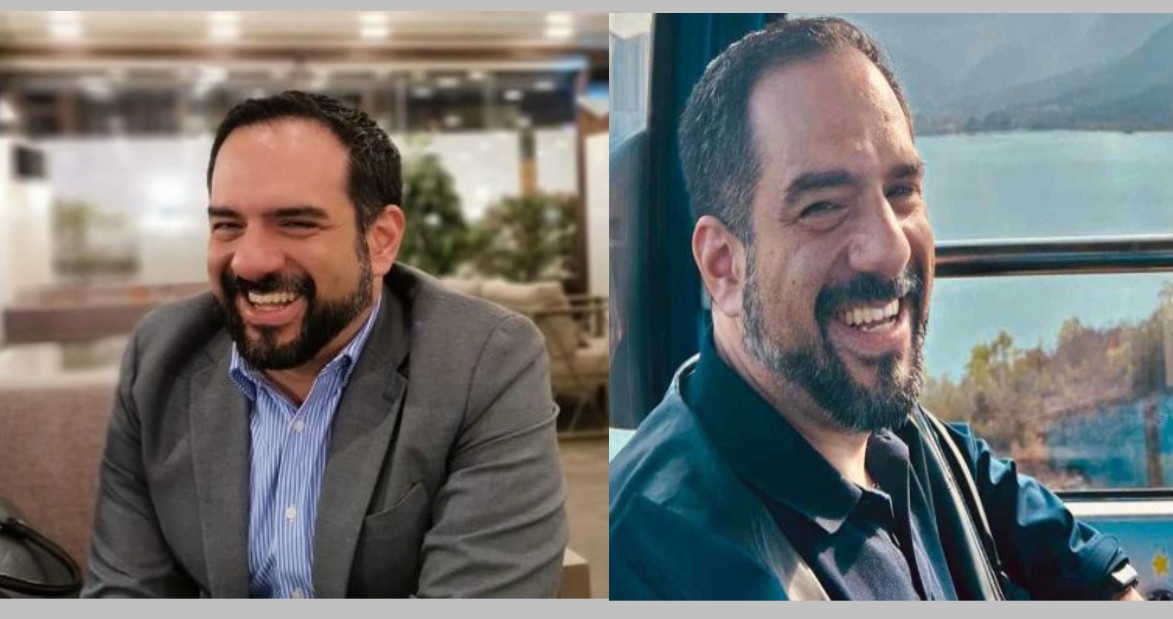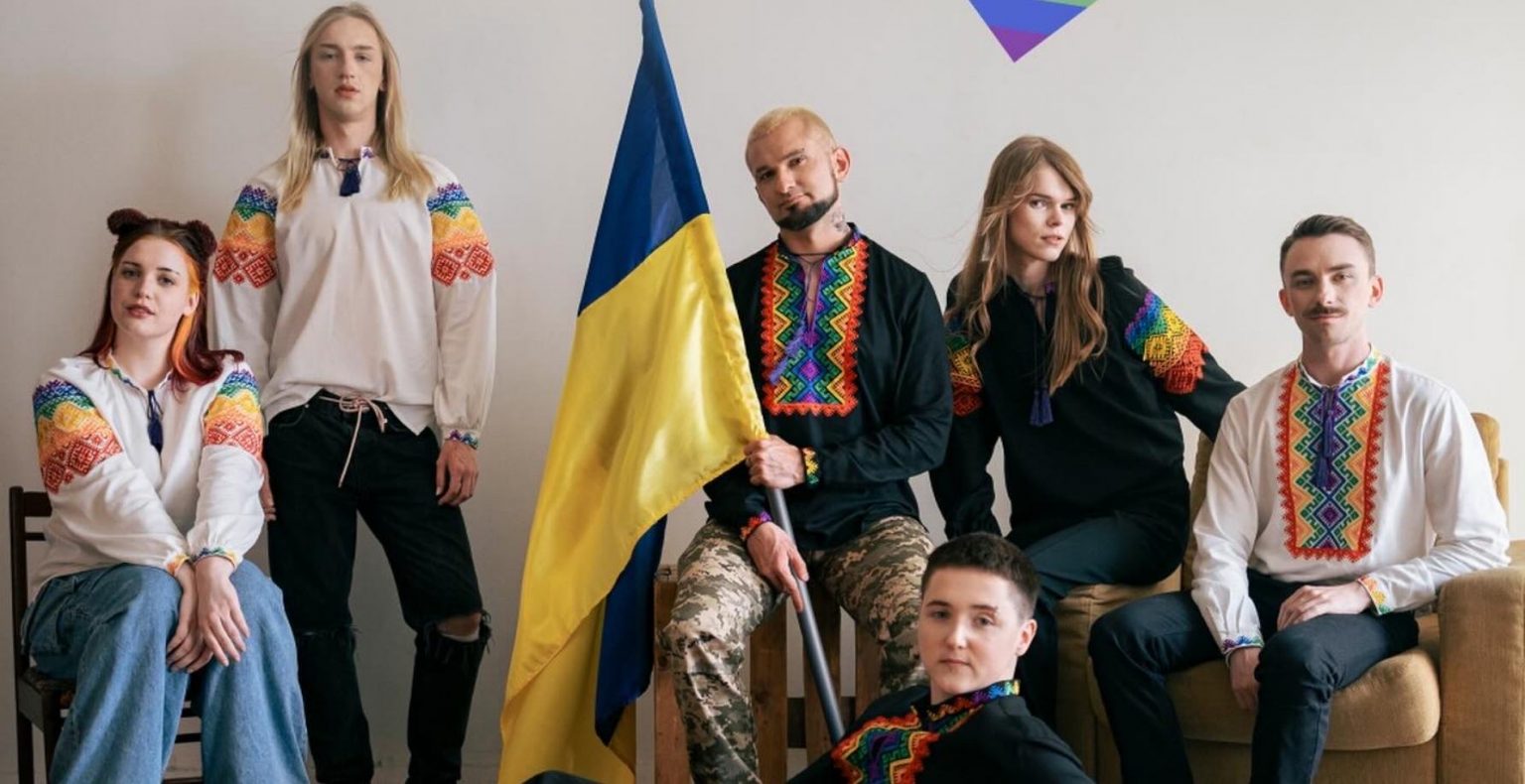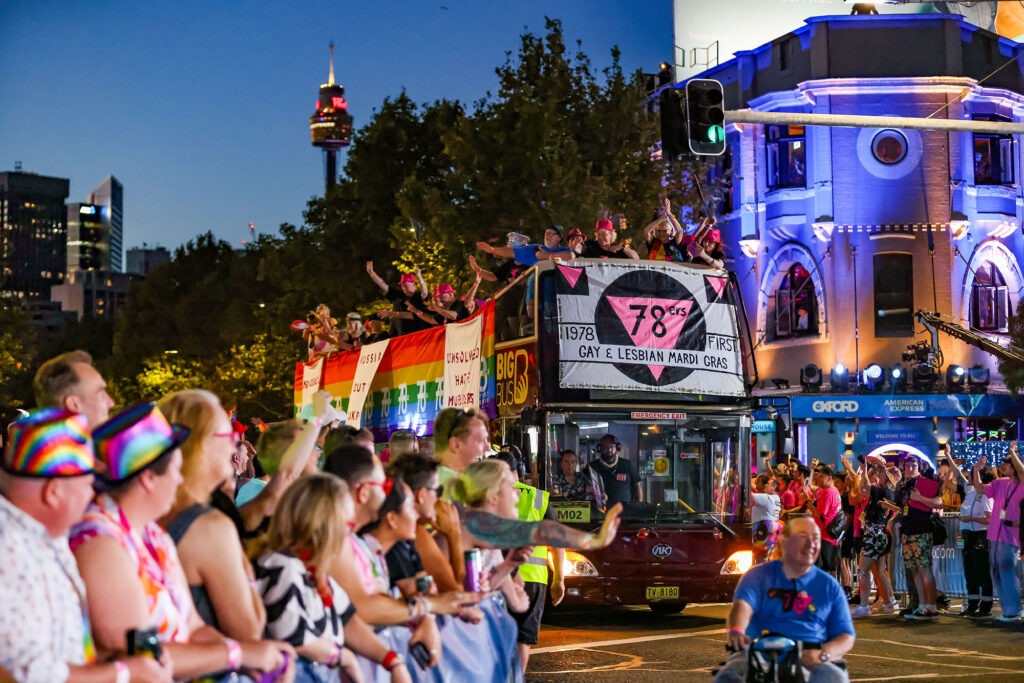World
Out in the World: LGBTQ news from Europe and Asia
Qatari authorities give suspended sentence to British Mexican man arrested in Grindr sting

QATAR

A British Mexican man who was arrested in a Grindr sting operation has been given a six-month suspended sentence and will be deported — although the state has 30 days to launch an appeal, during which he is not allowed to leave — the BBC reports.
Manuel Guerrero Aviña, 44, was arrested on what his family are calling trumped up drug charges in Doha in February, after being lured to a fake meeting on the gay cruising app Grindr. This week, he was handed his sentence, which includes a fine of approximately $2,700.
Guerrero, who has lived in Qatar for seven years and works for an airline, has told the BBC he is considering an appeal.
His family has previously told the BBC that he was approached online by a man named “Gio,” who also used the screen name “Mike” on both Grindr and Tinder. Guerrero invited “Gio” to his apartment, but when he went to the lobby to let him in, police were waiting and arrested him.
Police searched his apartment and allegedly found amphetamine and methamphetamine. They later administered a drug test which they say show evidence he had used the substances.
Guerrero says the drugs were planted as part of a sting operation targeting queer people. Under threat of torture and without a translator or lawyer, he was coerced into signing a document written in Arabic, a language he doesn’t read, admitting his possession of the drugs.
He spent 42 days in pretrial detention before being given provisional release, during which time police attempted to coerce him into naming other queer people.
Complicating his situation is the fact that he lives with HIV. While in detention, guards frequently withheld his medication, which could have enabled the virus to build up a resistance to it. He ran out of his prescription, which is not available in Qatar, in April, and has had to use a local substitute.
Several human rights groups have criticized the lack of due process in Guerrero’s case, the evidence that he was targeted for his sexual identity, and the implication that a wider crackdown on queer people is in the works.
“This has been about his LGBT status from the start and his desire to express that status and his identity, and that’s what this case is about,” James Lynch, co-director of the human rights organization Fair Square, told the BBC. “He’s an LGBT person and he was targeted through a dating app. You don’t do that, unless that’s the thing you are focused on.”
Qatari officials deny that Guerrero was targeted for any reason other than the possession of illegal substances.
Following Guerrero’s arrest, Grindr began displaying a warning to users in Qatar that “police are known to be making arrests on the app.”
Same-sex intercourse between men is illegal in Qatar, with potential sentences of up to three years. The law also allows a death sentence to be imposed for unmarried Muslims who have sex regardless of gender, though there are no records it has ever been carried out.
UKRAINE

The Kyiv City Council denied a organizers of Kyiv Pride a permit to hold the annual human rights demonstration on the city’s metro system, citing security concerns and the need to maintain service on the subway network, the Kyiv Post reports.
Kyiv Pride organizers say they still plan to go ahead with their march in the metro on June 16 even without a city permit.
Kyiv has not held a Pride festival since the latest Russian invasion began in February 2022. The organizers of Kyiv Pride say they were inspired to hold their march on the metro system by a similar event held in the war-torn eastern city Kharkiv in 2022, where the metro was the safest place to gather during Russian bombardment.
It’s partly because the metro is used as a bomb shelter during Russian attacks that the city denied a permit for the event. The city released a statement on June 3 calling on organizers to find another venue.
“In order not to endanger the participants and passengers, and to avoid possible provocations, the city authorities cannot allow the Equality March to take place in the metro,” it said.
Organizers expect up to 500 people to take part in the Pride march this year. They’re asking participants to register in advance in order to limit the number of participants who show up at metro.
In a lengthy post on Kyiv Pride’s Facebook page, the organizers underscore the importance of holding a highly visible Pride festival, even during the upheaval of wartime.
“It is our obligation before Ukrainian queer soldiers who are also supporting the March to ensure that they return from the frontlines to a more just legal environment,” the post says.
“Backed by society, the historic same-sex partnerships law and the law on hate crimes dropped from the parliament’s priority list. We must seize the opportunity to remind the government that ensuring dignity and equality for all Ukrainian citizens is not a second-tier priority. Organizing an LGBTQ+ civil rights march in Ukraine amid the ongoing Russian [sic] invasion is a complex and courageous endeavor.”
ITALY

An Italian couple is planning to challenge social conventions even as they challenge the bonds of the earth itself, by becoming the first gay couple to get married in outer space.
Alessandro Monterosso, a 33-year-old health software entrepreneur, and Alec Sander, a 25-year-old recording artist, will exchange vows in 2025 aboard a private spaceflight offered by the U.S. company Space Perspective.
Space Perspective is not yet in commercial operation, but its website says it will offer bespoke experiences aboard a luxury capsule that is lifted to the edge of space by a hydrogen-filled balloon at a speed of 12 miles per hour.
Monterosso and Sander have booked a whole capsule for them and six guests at a cost of $125,000 per person, an even $1,000,000 total. They say they are not seeking sponsors.
Monterosso and Sander first met in Padua in 2017, and they dated for four years until Sander broke it off because it was difficult to date while Monterosso was still in the closet. A year later, they met up again and Monterosso asked Sander to marry him. Sander agreed, but he didn’t immediately know that his fiancé wanted to hold the wedding in space.
“I was planning the trip as a civilian, to fulfill my childhood desire to become an astronaut. When I came into contact with the aerospace agency we relied on, it came naturally to me to ask: but can I also get married in space?” Monterosso told the Corriere della Sera newspaper.
“It seemed like such a romantic idea. I had struggled so much to accept myself as homosexual, not because I wasn’t sure, but because of the social context, and I told myself that now I would have to tell the whole world how I felt. Firstly because I know that there are many people who experience what I experienced, and then to confirm the infinite love I feel for Alec,” he says.
But Monterosso and Sander have a political message behind their space wedding as well. Same-sex marriage is not legal in Italy, and its current far-right government has cracked down hard on same-sex parents.
“Couples like us are not always well regarded in Italy. In other places in the world, they are even illegal. In Russia we are considered terrorists. Well, we just want to say that it’s time to normalize everything and amplify this message as much as possible. And if it is therefore so difficult to get married on Earth, then we are going to do it in space, with a galactic wedding whose aim is precisely to normalize these loves,” Monterosso says. “The message is aimed at people, because even today we still feel eyes on us if we hold hands while walking down the street. But if people normalize, politics must adapt.”
Monterosso and Sander already have their sights set on more distant shores.
“For our 20th anniversary, we are aiming for Mars,” Monterosso says.
AUSTRALIA

The government of New South Wales issued a historic apology this week to queer people who were persecuted under old laws that criminalized same-sex intercourse.
New South Wales decriminalized same-sex intimacy in 1984, one of the last Australian states to do so. Forty years later, it has become the last state to issue an apology for criminalizing queer people, after all other states did so in 2016 and 2017.
Delivering a speech in the state parliament, New South Wales Premier Chris Minns said he “recognizes and regrets this parliament’s role in enacting laws and endorsing policies of successive governments’ decisions that criminalized, persecuted and harmed people based on their sexuality and gender.
Minns’s apology acknowledged people were harmed by these laws even if they weren’t directly charged or convicted under them.
“To those who survived these terrible years, and to those who never made it through, we are truly sorry. We’re sorry for every person convicted under legislation that should never have existed. For every person that experienced fear as a result of that legislation.
“Everyone who lost a job, who lost their future, or who lost the love of family and friends. We are very sorry for every person, convicted or otherwise, who were made to live a smaller life because of these laws,” he said.
People who had been convicted under New South Wales’s old sodomy laws have been eligible to have the convictions expunged since a law change in 2014.
Minns’ government recently passed a ban on conversion therapy in March, making New South Wales the fourth jurisdiction in Australia to do so.
The state’s only openly gay MP, Independent Alex Greenwich, says that the apology has to be followed by more action to promote equality.
He’s put forward his own bill that would close a loophole in anti-discrimination law to ban discrimination by religious schools against LGBTQ students and teachers, and would allow trans people to change their legal gender without having to undergo a medical procedure.
“I rise as the only openly gay member of the Legislative Assembly to contribute to this apology,” Greenwich said in the state parliament. “I am one of only two in this chamber’s 186-year-old history. This in itself shows how much work we need to do.”
Netherlands
Rob Jetten becomes first gay Dutch prime minister
38-year-old head of government sworn in on Monday

Rob Jetten on Monday became the Netherland’s first openly gay prime minister.
Jetten’s centrist D66 party won the country’s elections last October, narrowly defeating Geert Wilders’ far-right Party for Freedom.
King Willem-Alexander on Monday swore in Jetten, who is also the country’s youngest-ever prime minister. The Associated Press notes Jetten’s coalition government includes the center-right Christian Democrats and the center-right People’s Party for Freedom and Democracy.
“Proud to be able to do this together,” said Jetten in an X post before Willem-Alexander swore him in.
COC Nederland, a Dutch LGBTQ advocacy group, in a statement said Jetten “becoming prime minister shows that your sexual orientation doesn’t have to matter.”
“You can become a construction worker, a doctor, a lawyer, and even prime minister,” said COC Nederland.
The advocacy group noted Jetten has said his government will implement its “Rainbow Agreement” that include calls for strengthening nondiscrimination laws “to better protect transgender and intersex people,” appointing more “discrimination investigators … to address violence against LGBTQ+ people and other minorities,” and introducing measures “to promote acceptance in schools.”
“COC will hold the Cabinet to that promise,” said COC Nederland.
Jetten’s fiancé is Nicolás Keenen, an Argentine field hockey player who competed in the 2024 Summer Olympics in Paris.
Jetten is one of two openly gay heads of government: Andorran Prime Minister Xavier Espot Zamora came out in 2023. Gay Latvian President Edgars Rinkēvičs, who is the country’s head of state, took office in 2023.
Leo Varadkar, who was Ireland’s prime minister from 2017-2020 and from 2022-2024, and Xavier Bettel, who was Luxembourg’s prime minister from 2013-2023, are gay. Ana Brnabić, who was Serbia’s prime minister from 2017-2024, is a lesbian.
Former Icelandic Prime Minister Jóhanna Sigurðardóttir in 2009 became the world’s first openly lesbian head of government. Former Belgian Prime Minister Elio Di Rupo, former San Marino Captain Regent Paolo Rondelli, and former French Prime Minister Gabriel Attal are also openly gay.
Colombian presidential candidate Claudia López, who is the former mayor of Bogotá, the Colombian capital, would become her country’s first female and first lesbian president if she wins the country’s presidential election that is taking place later this year.
Ecuador
Justicia reconoce delito de odio en caso de bullying en Instituto Nacional Mejía de Ecuador
Johana B se suicidó el 11 de abril de 2023

A casi tres años del suicidio de Johana B., quien estudió en el Instituto Nacional Mejía, colegio emblemático de Quito, el Tribunal de la Corte Nacional de Justicia ratificó la condena para el alumno responsable del acoso escolar que la llevó a quitarse la vida.
Según información de la Fiscalía, el fallo de última instancia deja en firme la condena de cuatro años de internamiento en un centro para adolescentes infractores, en una audiencia de casación pedida por la defensa del agresor, tres meses antes de que prescriba el caso.
Con la sentencia, este caso es uno de los primeros en el país en reconocer actos de odio por violencia de género, delito tipificado en el artículo 177 del Código Orgánico Penal Integral (COIP).
El suicidio de Johana B. ocurrió el 11 abril de 2023 y fue consecuencia del acoso escolar por estereotipos de género que enfrentó la estudiante por parte de su agresor, quien constantemente la insultaba y agredía por su forma de vestir, llevar el cabello corto o practicar actividades que hace años se consideraban exclusivamente para hombres, como ser mando de la Banda de Paz en el Instituto Nacional Mejía.
Desde la muerte de Johana, su familia buscaba justicia. Su padre, José, en una entrevista concedida a edición cientonce para la investigación periodística Los suicidios que quedan en el clóset a causa de la omisión estatal afirmó que su hija era acosada por su compañero y otres estudiantes con apodos como “marimacha”, lo que también fue corroborado en los testimonios recogidos por la Unidad de Justicia Juvenil No. 4 de la Fiscalía.
Los resultados de la autopsia psicológica y del examen antropológico realizados tras la muerte de Johana confirmaron las versiones de sus compañeras y docentes: que su agresor la acosó de manera sistemática durante dos años. Los empujones, jalones de cabello o burlas, incluso por su situación económica, eran constantes en el aula de clase.
La violencia que recibió Johana escaló cuando su compañero le dio un codazo en la espalda ocasionándole una lesión que le imposibilitó caminar y asistir a clases.
Días después del hecho, la adolescente se quitó la vida en su casa, tras escuchar que la madre del agresor se negó a pagar la mitad del valor de una tomografía para determinar la lesión en su espalda, tal como lo había acordado previamente con sus padres y frente al personal del DECE (Departamento de Consejería Estudiantil del colegio), según versiones de su familia y la Fiscalía.
#AFONDO | Johana se suicidó el 11 de abril de 2023, tras ser víctima de acoso escolar por no cumplir con estereotipos femeninos 😢.
Dos semanas antes, uno de sus compañeros le dio un codazo en la espalda, ocasionándole una lesión que le imposibilitó caminar 🧵 pic.twitter.com/bXKUs9YYOm
— EdicionCientonce (@EdCientonce) September 3, 2025
“Era una chica linda, fuerte, alegre. Siempre nos llevamos muy bien, hemos compartido todo. Nos dejó muchos recuerdos y todos nos sentimos tristes; siempre estamos pensando en ella. Es un vacío tan grande aquí, en este lugar”, expresó José a Edición Cientonce el año pasado.
Para la fiscal del caso y de la Unidad de Justicia Juvenil de la Fiscalía, Martha Reino, el suicidio de la adolescente fue un agravante que se contempló durante la audiencia de juzgamiento de marzo de 2024, según explicó a este medio el año pasado. Desde entonces, la familia del agresor presentó un recurso de casación en la Corte Nacional de Justicia, que provocó la dilatación del proceso.
En el fallo de última instancia, el Tribunal también dispuso que el agresor pague $3.000 a la familia de Johana B. como reparación integral. Además, el adolescente deberá recibir medidas socioeducativas, de acuerdo al artículo 385 del Código Orgánico de la Niñez y Adolescencia, señala la Fiscalía.
El caso de Johana también destapó las omisiones y negligencias del personal del DECE y docentes del Instituto Nacional Mejía. En la etapa de instrucción fiscal se comprobó que no se aplicaron los protocolos respectivos para proteger a la víctima.
De hecho, la Fiscalía conoció el caso a raíz de la denuncia que presentó su padre, José, y no por el DECE, aseguró la fiscal el año pasado a Edición Cientonce.
Pese a estas omisiones presentadas en el proceso, el fallo de última instancia sólo ratificó la condena para el estudiante.
Africa
LGBTQ groups question US health agreements with African countries
Community could face further exclusion, government-sanctioned discrimination

Some queer rights organizations have expressed concern that health agreements between the U.S. and more than a dozen African countries will open the door to further exclusion and government-sanctioned discrimination.
The Trump-Vance administration since December has signed five-year agreements with Kenya, Uganda, and other nations that are worth a total of $1.6 billion.
Kenyan and Ugandan advocacy groups note the U.S. funding shift from NGO-led to a government-to-government model poses serious risks to LGBTQ people and other vulnerable populations in accessing healthcare due to existing discrimination based on sexual orientation.
Uganda Minority Shelters Consortium, Let’s Walk Uganda, the Kenya Human Rights Commission, and the Center for Minority Rights and Strategic Litigation note the agreements’ silence on vulnerable populations in accessing health care threatens their safety, privacy, and confidentiality.
“Many LGBTQ persons previously accessed HIV prevention and treatment, sexual and reproductive health services, mental health support, and psychosocial care through specialized clinics supported by NGOs and partners such as USAID (the U.S. Agency for International Development) or PEPFAR,” Let’s Walk Uganda Executive Director Edward Mutebi told Washington Blade.
He noted such specialized clinics, including the Let’s Walk Medical Center, are trusted facilities for providing stigma-free services by health workers who are sensitized to queer issues.
“Under this new model that sidelines NGOs and Drop-in Centers (DICs), there is a high-risk of these populations being forced into public health facilities where stigma, discrimination, and fear of exposure are prevalent to discourage our community members from seeking care altogether, leading to late testing and treatment,” Mutebi said. “For LGBTQ persons already living under criminalization and heightened surveillance, the loss of community-based service delivery is not just an access issue; it is a full-blown safety issue.”
Uganda Minority Shelters Consortium Coordinator John Grace said it is “deeply troubling” for the Trump-Vance administration to sideline NGOs, which he maintains have been “critical lifelines” for marginalized communities through their specialized clinics funded by donors like the Global Fund and USAID.
USAID officially shut down on July 1, 2025, after the White House dismantled it.
Grace notes the government-to-government funding framework will impact clinics that specifically serve the LGBTQ community, noting their patients will have to turn to public systems that remain inaccessible or hostile to them.
“UMSC is concerned that the Ugandan government, under this new arrangement, may lack both the political will and institutional safeguards to equitably serve these populations,” Grace said. “Without civil society participation, there is a real danger of invisibility and neglect.”
Grace also said the absence of accountability mechanisms or civil society oversight in the U.S. agreement, which Uganda signed on Dec. 10, would increase state-led discrimination in allocating health resources.
Center for Minority Rights and Strategic Litigation Legal Manager Michael Kioko notes the U.S. agreement with Kenya, signed on Dec. 4, will help sustain the country’s health sector, but it has a non-binding provision that allows Washington to withdraw or withhold the funding at any time without legal consequences. He said it could affect key health institutions’ long-term planning for specialized facilities for targeted populations whose independent operations are at stake from NGOS the new agreement sidelines.
“The agreement does not provide any assurance that so-called non-core services, such as PrEP, PEP, condoms, lubricants, targeted HIV testing, and STI prevention will be funded, especially given the Trump administration’s known opposition to funding these services for key populations,” Kioko said.
He adds the agreement’s exclusionary structure could further impact NGO-run clinics for key populations that have already closed or scaled down due to loss of the U.S. funding last year, thus reversing hard-won gains in HIV prevention and treatment.
“The socio-political implications are also dire,” Kioko said. “The agreement could be weaponized to incite discrimination and other LGBTQ-related health issues by anti-LGBTQ voices in the parliament who had called for the re-authorization of the U.S. funding (PEPFAR) funding in 2024, as a political mileage in the campaign trail.”
Even as the agreement fails to safeguard specialized facilities for key populations, the Kenya Human Rights Commission states continued access to healthcare services in public facilities will depend on the government’s commitment to maintain confidentiality, stigma-sensitive care, and targeted outreach mechanisms.
“The agreement requires compliance with applicable U.S. laws and foreign assistance policies, including restrictions such as the Helms Amendment on abortion funding,” the Kenya Human Rights Commission said in response to the Blade. “More broadly, funded activities must align with U.S. executive policy directives in force at the time. In the current U.S. context, where executive actions have narrowed gender recognition and reduced certain transgender protections, there is a foreseeable risk that funding priorities may shift.”
Just seven days after Kenya and the U.S. signed the agreement, the country’s High Court on Dec. 11 suspended its implementation after two petitioners challenged its legality on grounds that it was negotiated in secrecy, lacks proper parliamentary approval, and violates Kenyans’ data privacy when their medical information is shared with America.
The agreement the U.S. and Uganda signed has not been challenged.
-

 Movies5 days ago
Movies5 days agoRadical reframing highlights the ‘Wuthering’ highs and lows of a classic
-

 District of Columbia4 days ago
District of Columbia4 days agoJudge rescinds order against activist in Capital Pride lawsuit
-

 District of Columbia4 days ago
District of Columbia4 days agoTrans activists arrested outside HHS headquarters in D.C.
-

 Ecuador5 days ago
Ecuador5 days agoJusticia reconoce delito de odio en caso de bullying en Instituto Nacional Mejía de Ecuador




















